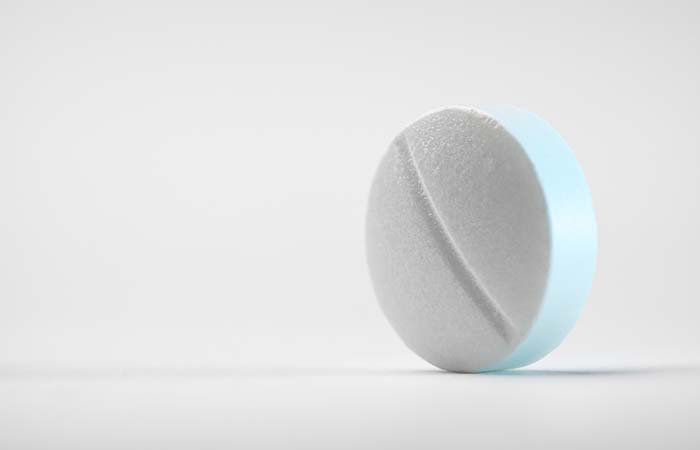Can Modafinil Benefit Individuals with Schizophrenia?
Schizophrenia is a severe, chronic mental disorder that affects how a person thinks, feels, and behaves. It is characterized by positive symptoms (e.g., hallucinations, delusions), negative symptoms (e.g., avolition, anhedonia), and cognitive deficits (e.g., impaired memory and attention). Standard antipsychotic medications primarily address positive symptoms, leaving a significant need for treatments targeting negative and cognitive symptoms.
Modafinil, a wakefulness-promoting agent approved for narcolepsy and shift work sleep disorder, has gained attention as a potential adjunctive treatment in schizophrenia, particularly for cognitive dysfunction and antipsychotic-induced sedation.
Cognitive Enhancement
Cognitive impairment is a core feature of schizophrenia and a major determinant of functional disability. Modafinil has been studied for its pro-cognitive effects in schizophrenia, with some trials showing benefits in short- and long-term memory, attention, and cognitive flexibility (Scoriels et al., 2013; Saavedra-Velez et al., 2009).
However, findings are mixed. While some studies found improvements (Turner et al., 2004b), others found no significant effects (Sevy et al., 2005). Meta-analyses highlight methodological limitations and small sample sizes, limiting the generalizability of findings (Ortiz-Orendain et al., 2013).
Alleviation of Negative Symptoms
Negative symptoms such as amotivation and social withdrawal are resistant to standard antipsychotic treatment. Some small studies and anecdotal reports suggest modafinil may increase motivation and engagement (Freudenreich et al., 2009), but larger randomized trials have failed to show consistent benefit (Saavedra-Velez et al., 2009).
In summary, modafinil’s role in managing negative symptoms remains unproven, and any observed benefits may be secondary to improved wakefulness or cognition rather than direct effects on core negative symptoms.
Clinical Evidence
Summary of Clinical Trials
Nine placebo-controlled studies involving over 200 patients with schizophrenia or first-episode psychosis have evaluated modafinil’s effects on cognition, sedation, and symptoms (Scoriels et al., 2013). Outcomes varied by study design, dosage, and patient population.
- Some trials reported improved working memory and attention (Turner et al., 2004b; Minzenberg et al., 2008).
- Others found no benefit or even worsened symptoms in some patients (Pierre et al., 2007).
- The overall tolerability profile was acceptable, though psychosis exacerbation was noted in 6% of treated patients versus 2.9% on placebo (Saavedra-Velez et al., 2009).
Meta-Analyses and Reviews
A Cochrane review found insufficient evidence to recommend modafinil as standard adjunct therapy for schizophrenia (Ortiz-Orendain et al., 2013). Reviews call for larger, well-powered trials using validated cognitive batteries such as the MATRICS framework (Saavedra-Velez et al., 2009).
Safety and Adverse Effects
Common Side Effects
Modafinil is generally well-tolerated. Common side effects include headache, nausea, anxiety, and insomnia (FDA, 2015; StatPearls, 2024).
Psychotic Symptom Exacerbation
Though rare, modafinil can exacerbate psychosis, especially in patients with active symptoms or a history of medication non-adherence (Saavedra-Velez et al., 2009). This highlights the need for careful monitoring, particularly during initiation.
Drug Interactions
Modafinil induces CYP3A4 and inhibits CYP2C19, potentially altering levels of antipsychotics like clozapine and risperidone (FDA, 2015). Clinicians should consider dose adjustments and monitor drug levels if available.
Mechanism of Action
Neurochemical Effects
Modafinil influences dopamine, norepinephrine, glutamate, and histamine systems, all implicated in cognitive processing (Scoriels et al., 2013; StatPearls, 2024). The drug enhances prefrontal cortex activity, which may underlie its cognitive benefits.
Pharmacokinetics
Modafinil has a half-life of ~12–15 hours and is typically dosed once daily. Its R-enantiomer, armodafinil, may provide more sustained effects (StatPearls, 2024).
Clinical Considerations
Patient Selection
Ideal candidates may include patients with:
- Persistent cognitive impairment
- Excessive sedation from antipsychotics
- Stable positive symptoms
Patients with active psychosis, agitation, or substance use disorders are not good candidates.
Monitoring and Follow-Up
- Initiate at 100–200 mg/day; adjust as needed.
- Monitor for agitation, insomnia, or exacerbation of psychosis.
- Review potential drug interactions with antipsychotics and contraceptives (FDA, 2015).
Discussion
The evidence for modafinil as an adjunctive treatment in schizophrenia is promising but inconsistent. Methodological weaknesses, including small sample sizes and heterogeneity in outcome measures, hinder firm conclusions.
Current guidelines do not recommend routine use of modafinil in schizophrenia but suggest it may be considered on a case-by-case basis with close supervision.
Conclusion
While modafinil shows potential in improving cognition and reducing antipsychotic-induced fatigue in schizophrenia, the evidence remains inconclusive. Its use should be individualized, with thorough risk-benefit assessment and monitoring for adverse effects.
References
- U.S. Food and Drug Administration. (2015). PROVIGIL® (modafinil) tablets, for oral use, C-IV [Prescribing information]. U.S. Department of Health and Human Services. https://www.accessdata.fda.gov/drugsatfda_docs/label/2015/020717s037s038lbl.pdf
- Greenblatt, K., & Adams, N. (2023). Modafinil. In StatPearls. StatPearls Publishing. https://www.ncbi.nlm.nih.gov/books/NBK531476/
- Ortiz-Orendain, J., Covarrubias-Castillo, S. A., Vazquez-Alvarez, A. O., Castiello-de Obeso, S., Arias Quiñones, G. E., Seegers, M., & Colunga-Lozano, L. E. (2019). Modafinil for people with schizophrenia or related disorders. Cochrane Database of Systematic Reviews, 12, Article CD008661. https://doi.org/10.1002/14651858.CD008661.pub2
- Saavedra-Velez, C., Yusim, A., Anbarasan, D., & Lindenmayer, J. P. (2009). Modafinil as an adjunctive treatment of sedation, negative symptoms, and cognition in schizophrenia: A critical review. Journal of Clinical Psychiatry, 70(1), 104–112. https://doi.org/10.4088/jcp.07r03982
- Scoriels, L., Jones, P. B., & Sahakian, B. J. (2013). Modafinil effects on cognition and emotion in schizophrenia and its neurochemical modulation in the brain. Neuropharmacology, 64, 168–184. https://doi.org/10.1016/j.neuropharm.2012.07.011








